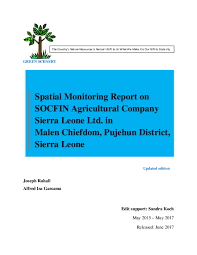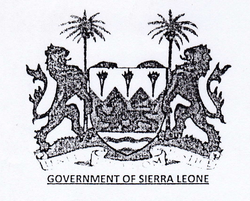Large-scale land deals in Sierra Leone at the intersection of gender and lineage
There is wide engagement with large-scale land deals in sub-Saharan Africa, particularly from the perspectives of development and international political economy. Recently, scholars have increasingly pointed to a gendered lacuna in this literature. Engagement with gender tends to focus on potential differential impacts for men and women, and it also flags the need for more detailed empirical research of specific land deals.




